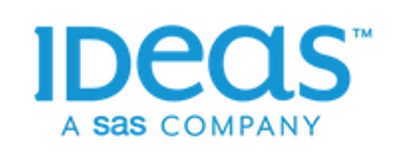
Growing the hotel revenue management talent pool
By cameron in Uncategorized
Around the globe, hoteliers have been attempting to address the need to build and retain revenue management talent. It’s not only a costly venture – according to Deloitte, 45 percent of operating expenses and 33 percent of revenues goes toward talent – but also has become even more challenging due to an evolving workforce of Millennials.
NB: This is a viewpoint by Linda Hatfield, vice president of knowledge management for IDeaS Revenue Solutions.
However, as neither revenue management nor Millennials are going away any time soon, it may be time to re-evaluate your current outlook on the talent pool and overall retention strategy.
In order to gain a better understanding of the best approach to finding and retaining revenue management talent, consider these three factors:
1. “Millennials” goes beyond a buzzword – it’s the reality of our workforce
Millennials now make up one-third of the US workforce, and by 2020 will comprise half of the global workforce. These energetic individuals are the most up-to-date on the latest technology and processes, and will be the future faces of our hotels.
And, as the role of the hotel revenue manager is typically held by those in the 25-35 year old age bracket, Millennials will quickly become the majority of those in this position.
Therefore, we must work to understand their needs in order to keep our industry – and revenue management, in particular – staffed with the best talent.
When it comes to careers, Millennials are widely believed to be a lot more impatient – they want to excel quickly and have a paycheck that reflects their value. But ultimately, they are looking for the same things every employee wants: schedule control, diversity and inclusion, choice of projects, employee value propositions and learning opportunities.
We all are aiming to grow as professionals. Therefore, hoteliers looking to encourage the interest, loyalty and retention of Millennials (and all employees) may need to reassess their organizational design. Set goals, create management programs, offer topical and functional programs or cross-business training calls, launch certification programs – these are just a few examples of ways to rejuvenate your revenue management team and workforce.
In focusing on the needs of the next generation, you’ll end up creating a better workplace for everyone.
2. Talent turnover is a (costly) concern – but it can be addressed
One of the biggest hurdles that the hospitality industry must overcome in relation to talent management is the high degree of employee turnover – not just for Millennial workers, but all workers. The US Bureau of Labor reports that the travel and hospitality industry is the highest in turnover. This results in extra costs in recruitment and training. Deloitte found that 52 percent of the cost of replacing staff is productivity loss and 14 percent is orientation and training.
Although departing employees are more likely to be jumping between jobs than leaving the industry completely, the issue for the hotel revenue management sector is that there isn’t enough qualified talent available. That being said, there is an opportunity to invest in those who will soon be entering the workforce.
Consider connecting with local universities and institutions and offering internships to current students.
Yes, it’s back to Millennials again, but engaging with this younger talent will help deepen their understanding of and interest in revenue management, and allow you to grow and personally train your incoming talent pool.
3. Industry reputation matters – don’t let it negatively impact your organization
Though many factors can account for high turnover, there is a perception that the travel and hospitality industry does not offer abundant long-term career prospects, with top barriers including lack of compensation increases and excessive workload.
Millennials, in particular, often leave a job because they feel their input wasn’t valued. How can hoteliers combat these misconceptions to attract and keep the right talent?
Determine what is currently being delivered to your employees and aim towards meeting their organizational expectations while expanding their professional capabilities.
This may include clarity on the vision of your organization, being more transparent about processes or providing a certain work-life balance to all employees.
Also remember that there is a difference between managing and building the talent pool. Your goal should be to spend most of your time building your talent – particularly if you are looking to retain hotel revenue management employees.
Invest time in building the right tools sets for your team, and ensuring all members are expanding their scope and deepening their knowledge.
And even if your hotel or organization feels that it is behind in offering employees the best opportunities, there is time to catch up.
Looking ahead: Where do we go from here?
We are experiencing a significant change in the makeup of the hospitality industry’s revenue management talent pool. The impact of Millennials, higher turnover rates and the industry’s overall reputation means strategies are needed to build and retain the best employees.
The key is to invest in our RM talent – providing the right tools, meeting their needs and helping them learn and contribute.
Even though advanced revenue management solutions are available to help operations run smoothly, technology and talent go hand-in-hand. You still need the people – the revenue managers themselves – to communicate, influence culture and grow your business.

NB: This is a viewpoint by Linda Hatfield, vice president of knowledge management for IDeaS Revenue Solutions. It appears here as part of Tnooz’s sponsored content initiative.
NB2: Image by Vector Forever/BigStock.com
![]()

